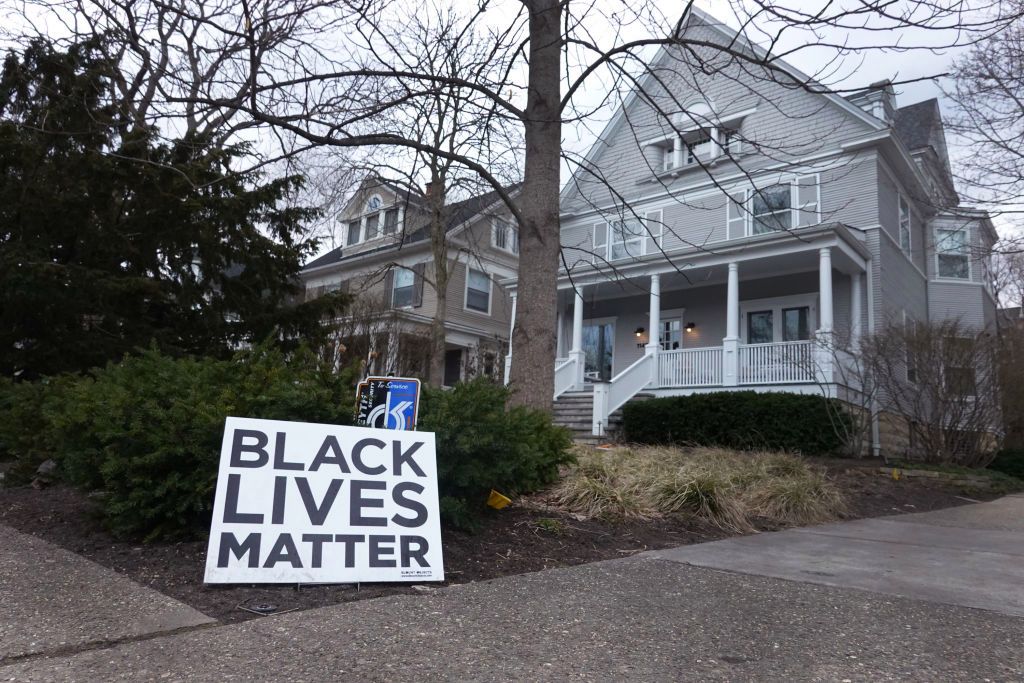Illinois City Greenlights Historic Reparations Plan For Black Residents Funded By A Weed Tax

Source: KAMIL KRZACZYNSKI / Getty
Located just north of Chicago, the city of Evanston, Illinois, is making waves over news of its new reparations program. Committing the first $10 million in revenue from the city’s cannabis tax, Evanston is the first city in the U.S. to enact some form of general reparations.
The move comes after a 2019 city council resolution establishing a reparations fund and a reparations subcommittee. “This historic vote is the culmination of nearly two years of community input, conversation, and hard work, but it follows decades of harmful policies and practices that impact Black Evanston families to this day,” said 5th Ward Ald. Robin Rue Simmons in a statement.

Source: KAMIL KRZACZYNSKI / Getty
The city allocated $400,000 through the Local Reparations Restorative Housing Program for housing help and mortgage relief. Eligible residents may receive up to $25,000 to qualifying residents for home repairs, mortgage help, or down payments on property.
The Restorative Housing Program is eligible to residents or direct descendants of Black residents who lived in the city between 1919 and 1969. Those who moved into the city after 1969 may still be eligible. Residents would need to provide evidence of discriminatory housing practices enacted by the city.
Affordable housing and economic development were the top two issues named by residents. Additional allocations will come after review of proposals by the reparations committee. The city is taking applications for the reparations committee through March 31.
The Evanston program has the support of The National Coalition of Blacks for Reparations in America (N’COBRA) and the National African American Reparations Commission (NAARC). In 2005, the state established a transatlantic slave trade commission to analyze the impacts of chattel slavery on Black residents in the state. It is unclear if the state will revisit that project.
“This is only a first step,” said Mayor Stephen Hagerty in a statement. “But it is an important one in repairing the historic harm done to our Black and African American community by racial discriminatory practices and ensuring that all Evanston families have the opportunity to build wealth and success across future generations.”

Source: Scott Olson / Getty
The city allegedly opted to not issue cash payments due to concerns about residents having to pay state and federal tax on direct funds. The city does not have the authority to waive state and federal taxes.
Another city program funded by Northwestern University allocated funds to “dismantling systemic barriers faced by historically marginalized communities.” Program allocations for 2021 include $300,000 for a guaranteed income pilot, $100,000 to operationalize racial equity within the city, and $50,000 to support language access.
“While we acknowledge we have a long way to go to repair all of the damages done by racism, we also know this program will make a real and lasting difference in the lives of some of those harmed by past injustices, and will set the stage for additional reparative measures in the future,” Simmons said.
Anoa Changa is a movement journalist and retired attorney based in Atlanta, Georgia. Follow Anoa on Instagram and Twitter @thewaywithanoa.
SEE ALSO:
Reparations For Slavery: A Promise Never Delivered
Reversing Course: Obama Says He Favors Reparations As Proposed Legislation Gains More Support
[ione_media_gallery id=”3917798″ overlay=”true”]

